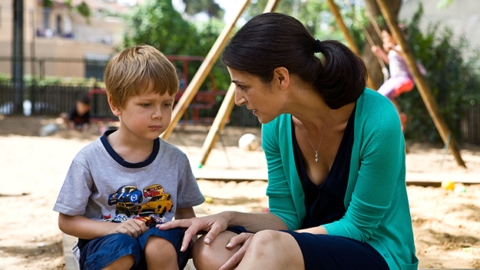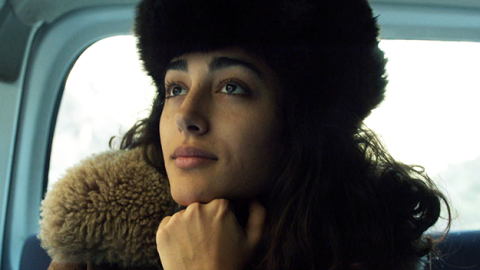Film of the Week: The Wild Pear Tree
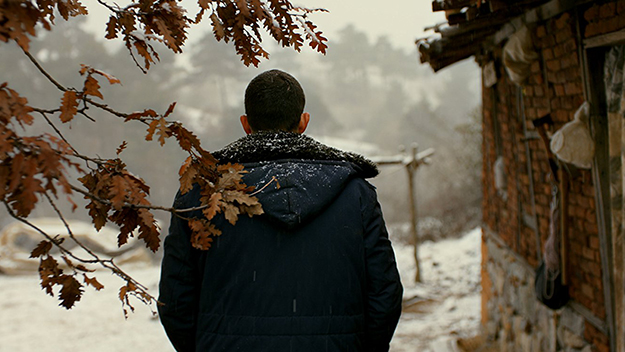
When important filmmakers write novels, the results don’t necessarily set the world alight—ask David Cronenberg or Paolo Sorrentino. A surer approach, for any director with the ambition, is to write novels purely for the screen, using the language of film; and while the idea of a “novelistic” film might be unfashionable, such attempts open to the charge of being literary rather than properly cinematic, some succeed beautifully. My favorite cine-novel in Cannes this year, although it was a work of lightness rather than necessarily depth, was Christophe Honoré’s blithe, tender Sorry Angel; my least favorite, a work of lugubrious pomposity and prolixity, mundanely morbid under the guise of satanic provocation, was Lars von Trier’s The House That Jack Built, an edifice creaking under the weight of its self-conscious metaphoric architecture.
And the most problematic? Nuri Bilge Ceylan’s The Wild Pear Tree. Ceylan’s follow-up to his 2014 Palme d’Or winner Winter Sleep was the competition contender that more than any other this year imposed itself as a grande oeuvre, a major statement from a major director. It tackles highly significant themes—the role of the artist in contemporary society, the rewards and struggles of the creative life, the devaluation of literature and learning, the conflicts between youth and experience, and between Islam and secularism in contemporary Turkey. And it tackles them at some length—just over three hours—with a tone that remains unfailingly serious throughout, albeit with occasional eruptions of mischief.
Like Winter Sleep, it is a formidable film—which is to say, it may be a great film, but it is not an easy one, nor an easy one to like. It may even belong to a particular rarefied category of cinema, the Palme d’Or winner’s film—perhaps a specialized strain of that difficult genus you might call le film formidable—of which the last major example was perhaps Michael Haneke’s The White Ribbon (2009). Like Haneke’s film, The Wild Pear Tree represents a serious attempt to grapple with the difficult issues of the day, and like it, The Wild Pear Tree demands that we meet the film on its terms, rather than making any compromise with our lazier viewing habits. Both films make me somewhat uneasy because they are so confident in their mastery and moral seriousness: neither quite feels like just a film, more like the cinematic equivalent of a Nobel-class literary novel.
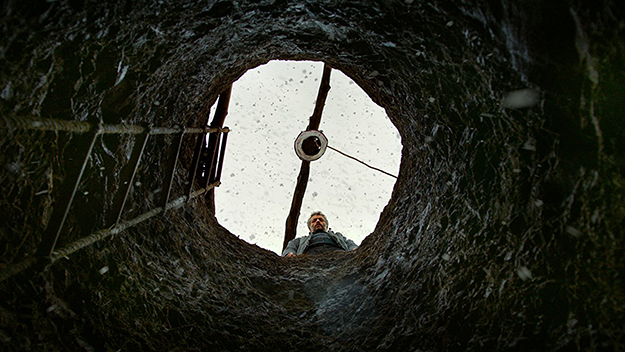
I wouldn’t for a moment accuse Ceylan of hubris or arrogance, because he is, I think, entirely sincere in his preoccupation with big issues—and besides, artistic arrogance is among the themes of his film. Like Winter Sleep, whose protagonist was a weary middle-aged historian of theater, it’s about a man in thrall to a literary dream that is possibly altogether quixotic, even futile. He is Sinan (Aydin Doğu Demirkol), a young man newly graduated from university and apparently destined for a teaching job somewhere in the east of Turkey, a fate he clearly regards as soul death. What he really cares about is writing; he has been working on a book of fiction that he hopes to self-publish, if only he can get the funding. It’s called—well, well—The Wild Pear Tree, and he claims at various points that it’s a work of social observation, that it was written “free of any faith, ideology and allegiance,” that it comprises personal confessions, and—most ominously—that it’s “a quirky autofiction meta-novel.”
We learn a lot about Sinan from the way he talks about his own work, even more from the way he can’t help belittling other people—but the casting also tells us a lot. From the very first shot of Sinan glaring sullenly through a café window, Demirkol’s face speaks volumes: his slightly baggy, unshaven jaw and his persistent look of sour contempt (he has a sullen touch of Jonah Hill about him) suggest that this is not someone whose presence will gladden the hearts of those around him.
Much of the film focuses on Sinan’s visit to his hometown of Çan and the nearby countryside, along with the odd scene in his university town of Çanakkale. There isn’t a great deal of narrative as such: the film is structured largely as a series of conversational encounters between Sinan and various people whose attitudes test the limits of his callow understanding of the world. One is with the loyal mayor, whom Sinan tries to tap for sponsorship, and who dispenses much rhetoric about responsibility and accessibility before sending him on his way empty-handed. Another is with a local sand supplier and supposed patron of the arts, a self-made man who pompously lectures Sinan on the proper role of literature, as well as giving him the old University of Life spiel, telling him how his contemporaries who studied all ended up penniless. That’s exactly what’s happened to Sinan’s father, Idris (Murat Cemcir), a charming but ineffectual teacher and inveterate gambler whose reputation among locals couldn’t be lower, and is now getting ever lower with the judgmental Sinan.
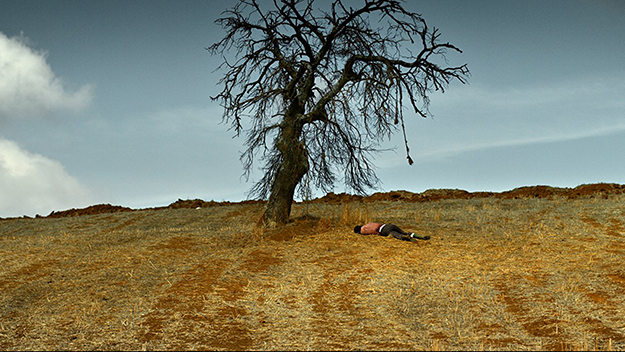
Another meeting, in which Sinan emerges as the most slappable protagonist in Ceylan’s oeuvre—and he has some competition—pits the pushy young tyro against a successful local novelist he meets in a bookshop. Sinan trails the man through town, essentially accusing him and pretty much all other writers of falling short of his own visionary idealism—and then has the nerve to ask the man to read his first draft.
The film’s most problematic section, however, is a very long, rambling debate—literally rambling, as throughout it the camera follows the interlocutors down a winding hillside path—between Sinan and two smooth young imams, who look less like traditional clerics than corporate execs on a dress-down day. The sequence begins comically with Sinan catching the imams up a tree sneakily picking apples, tying into a thematic thread to do with Eden and the banishment from paradise. Sinan accuses them of subscribing to the code of worldly greed, the imams talk about tradition and change, he asks them how technology fits into their world picture, the more conservative imam praises the consolations of following the Koran unquestioningly, his progressive lenient colleague proposes a more lenient approach… and so it goes on at considerable, even logorrheic length.
This scene represents Ceylan’s most direct engagement with the meaning of religion in the modern world, and specifically with Islam in modern Turkey, its debate on faith coming across as the director’s equivalent of the epically discursive Grand Inquisitor section in Dostoevsky’s The Brothers Karamazov (Dostoevsky is—not for the first time, I think—name-checked in the film’s end credits, along with Chekhov, Nietzsche et al.). But I kept wondering what the viewer was meant to do with this scene as cinema: as I struggled to scribble down phrases like, “No one’s more responsible than a person alone with his conscience and his free will,” it occurred to me that perhaps the only way to adequately absorb this scene would be to watch it at home, replaying sections when necessary, with a notebook in one hand and the film script in the other. On a single viewing, you struggle.
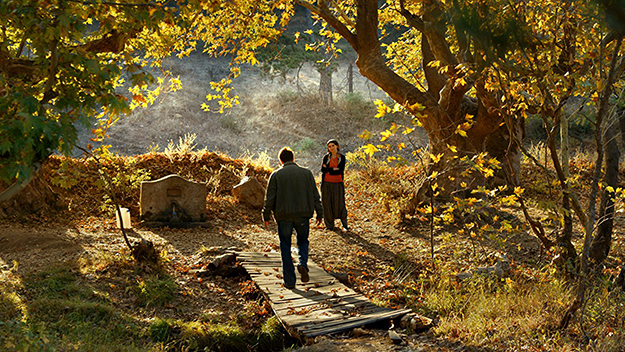
Other encounters register more immediately, as Ceylan lets the images do more of the talking. Take Sinan’s meeting with a girl he knew at school, Hatice (Hazar Ergüçlü). Her headscarf and field clothes indicate that she’s following the path of a virtuous Islamic girl and a rural toiler: she seems unimpressed by Sinan’s fancy city ways, but she’s open to letting out her sensuality in his company. Sharing a cigarette with him and removing her headscarf, she lets her lustrous hair float free in the wind. She’s due to marry a jeweler—presumably the tubby, unappealing individual who complains to Sanin that his dad owes him money—but she shares a kiss with Sinan as the wind blows, the camera hovers from above, and the film is briefly caught up in a truly cinematic rapture.
There are other moments at which cinema erupts as a more powerful force of disruption. In a bizarre image near the end, a dog leaps into the sea; we see a nightmarish, fabled episode from Idris’s childhood, possibly filtered through his son’s fictional imagination; at the very end of the film, Ceylan uses two separate images of a well to sketch out alternative possibilities of life, self-destructive despair versus existential and artistic perseverance despite all odds. There’s also a moment of pure comedy—echoing one of Ceylan’s best films, the sardonically witty Distant (2002)—in which Sinan, having accidentally vandalized a historic Çanakkale bridge, runs from the scene of the crime and hides out in what appears to be a local monument commemorating the Trojan horse. There is much discussion in the film about tradition and history, and this region’s supposed identity with the mythical Troy; characteristically of Ceylan’s wit, Çanakkale’s horse is actually a relic from the shoot of the 2004 Wolfgang Petersen epic Troy.
The allusion to Hollywood mythology ties in with ideas of low and high culture—the former, seemingly viewed with impatience by Ceylan, in the form of the TV soaps that drone on in a family’s apartment, and references to Survivor and Columbo. As for high literature, Sinan keeps pictures of Camus et al. in his cupboard at home, and portraits of the greats—Virginia Woolf, Gabriel García Márquez et al.—adorn the walls of a secondhand bookshop. But does anyone still care about literature? Will Sinan’s book change the world? Or even, in however small a way, his own life?
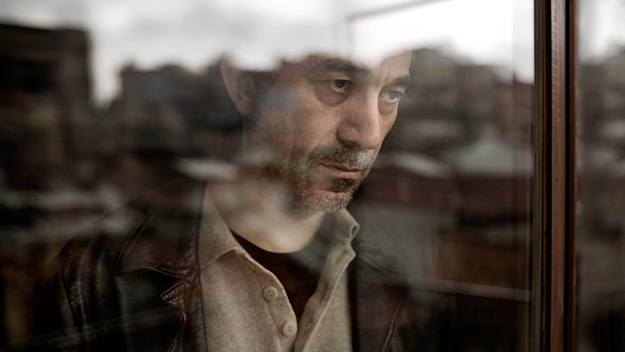
Ceylan cares profoundly about literature, which has been clear for a long time; the influence of Chekhov, if only in establishing a certain rueful, ruminative tone, has been especially evident since his superb Once Upon a Time in Anatolia (2011). But, like Winter Sleep, his new film makes me wonder how much Ceylan is now motivated by a passion for cinema. I may change my mind on a second viewing, but for now The Wild Pear Tree seems less the work of a great filmmaker than that of an important novelist. That feels to me like a loss.
Perhaps I should mention that in 27 years of attending Cannes, I have almost never managed to open a book during my time here, and that may be one reason why, as an addicted reader, I always feel a faint resentment against the sheer overabundance of cinema that invades my brain. Of course, I expect festivals to open my mind to the language of cinema—and occasionally, as with this year’s Jean-Luc Godard offering Le Livre d’image, to the cinema of language. I’m generally willing to put the primacy of the spoken word on hold, and to open up to images, which is why this year I felt some considerable resistance to the films that most exorbitantly indulged the spoken word—whether it was von Trier’s tedious, vapid The House That Jack Built or Ceylan’s substantial but sometimes indigestible offering. That’s also why I’m most eager to rewatch the Cannes films that achieved some novelistic depth through other methods, namely images, sound, narrative intricacy: notably Alice Rohrwacher’s Happy as Lazzaro and Lee Chang-dong’s Burning. By contrast, The Wild Pear Tree has substance, elegance, depth, grace—albeit a rather heavy grace. But, ultimately, I couldn’t help sympathizing with the novelist character who loses his cool at the insistent, over-garrulous Sinan, and says, “Right now, all I care about is not getting a migraine.”
Jonathan Romney is a contributing editor to Film Comment and writes its Film of the Week column. He is a member of the London Film Critics Circle.



